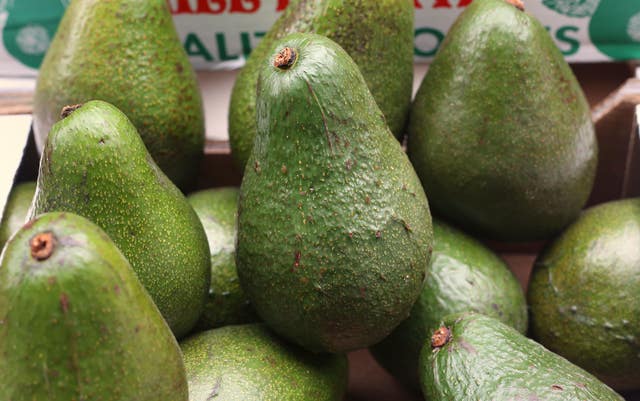Warning over lower pesticide standards as UK eyes Pacific free trade deal
The Government has been urged to resist pressure to weaken the UK’s laws on pesticides as it seeks to sign up to the trading agreement.

Campaigners have raised concerns the UK could be opening the door to scores of banned pesticides if it signs up to a Pacific trade agreement.
Pesticide Action Network UK (PAN UK), sustainable food and farming group Sustain and the University of Sussex’s Dr Emily Lydgate warn that joining the agreement could expose UK consumers and wildlife to 119 banned chemicals.
It could lead to imports containing pesticides banned from UK food for health reasons, put pressure on Britain to reverse bans on chemicals that harm wildlife, and harm exports to Europe if standards here slip, their report warns.
They are calling on the Government not to allow any weakening of its pesticide standards to sign up to the Pacific trade deal, and to prevent UK farmers from being disadvantaged by cheap food imports produced to lower regulations.
The report looks at the potential impact of the UK joining the Comprehensive and Progressive Agreement for Trans-Pacific Partnership (CPTPP) with 11 countries including Australia, Canada and Mexico, which it formally applied to join in February.
The report said the UK’s pesticide standards, while not perfect, are some of the strongest in the world in terms of protecting human health and the environment.
But joining the free trade agreement, which is already finalised and encourages regulatory alignment between members, could open the door to 119 pesticides banned in the UK but allowed in one or more of the member countries in the deal, the report warned.
Food imports from those countries could contain pesticides currently banned from appearing in UK food for health reasons, including a fungicide linked to cancer and effects on fertility, and insecticide which can affect mental development in young children.
Foods such as apples, wheat, grapes and avocados grown in countries which are members of the agreement are also allowed to have much higher levels of pesticides than in the UK.
And there could be pressure on the UK to reverse its ban on the use of pesticides such as neonicotinoids which cause harm to bees, the report said.
If the Government weakens domestic standards to enable imports from trade partners under the deal, encouraging UK farmers to use currently banned pesticides, exports from Britain will struggle to meet EU standards with impacts on the agricultural sector, it said.

Josie Cohen, head of policy and campaigns at PAN UK said: “This flies in the face of Government promises not to sign a trade deal which compromises UK environmental protection and food standards”.
Dr Lydgate, senior lecturer in Environmental Law at the University of Sussex, said: “As the UK signs this deal, it must make clear its pesticide standards aren’t on the table. If not, it will find itself on a slippery slope.
“By breaking with its long-held precautionary approach and agreeing to weaker pesticide standards under CPTPP, the UK would be much more likely to bow to similar demands from other trading partners.”
Vicki Hird, head of sustainable farming at Sustain, said: “The Government has talked a strong game on standing up for the UK farming sector post Brexit, but actions speak louder than words.
“With the CPTPP deal, the Government is selling farmers down the river. It would be a disastrous double whammy, potentially hitting both their domestic market and the majority of imports – to the EU.”
A poll of more than 1,700 people by YouGov for PAN UK found 58% thought it was important that the UK Government resisted pressure to overturn pesticide bans even if it meant the UK was unable to join the CPTPP deal.
Almost as many (57%) said ministers should not allow larger amounts of pesticides in foods, while just 5% said joining the agreement should be the priority even if it meant overturning bans or allowing more pesticides in food.
More than two thirds (68%) said they would be concerned it would hit people’s health if joining the deal meant lowering current pesticide standards and 67% said they would be worried it would have a negative impact on the environment.
A Government spokesman said: “These claims are not accurate – we will not compromise on our high environmental protections, animal welfare and food standards as part of trade deals.
“All CPTPP members retain the right to regulate their own levels of environmental protection and the agreement itself contains commitments to protect the environment.
“We’re clear that trade deals will not come at the expense of the environment.”





